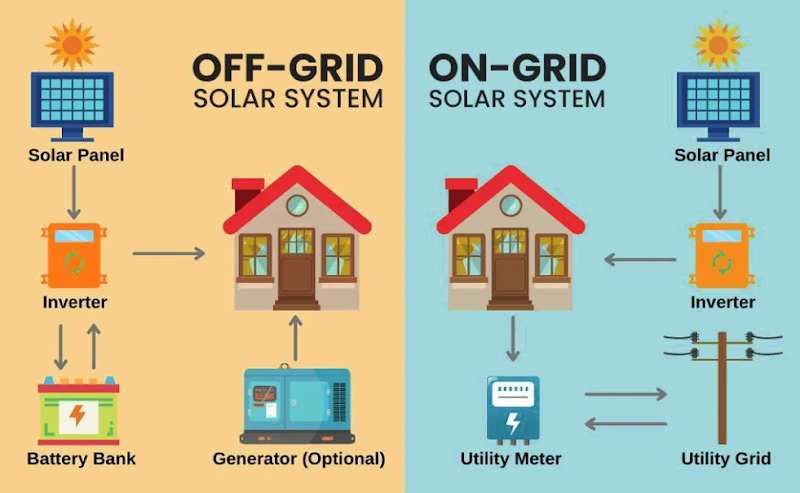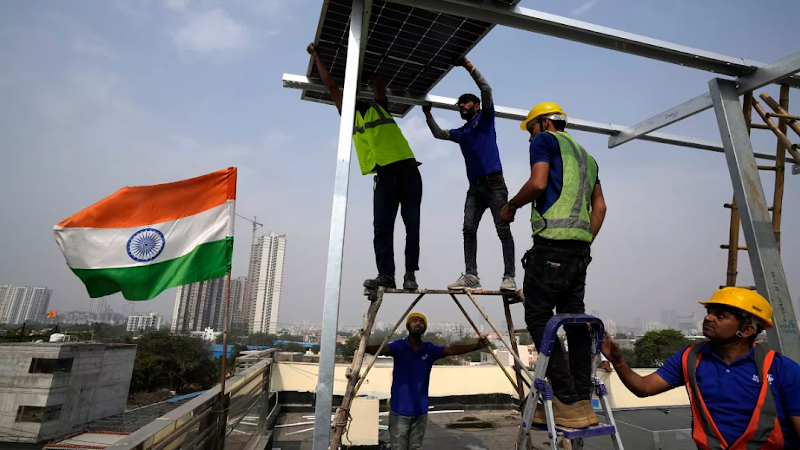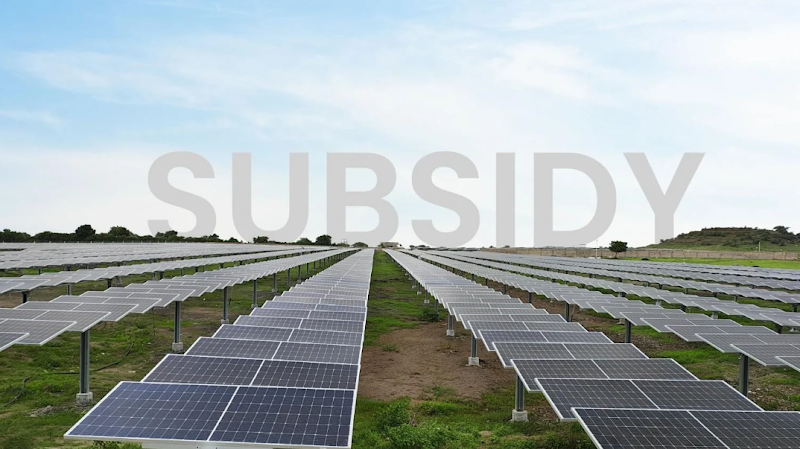Should You Choose Off-Grid or On-Grid Solar for Your Property?
What is an On-Grid Solar System?
What is an Off-Grid Solar System?
Power Supply Realities
Government Subsidies and Net Metering Policies
When to Opt for an On-Grid System?
When to Choose an Off-Grid System?
On-Grid vs Off-Grid in Practice
What's Best for You?
Ready to Go Solar?
Should You Choose Off-Grid or On-Grid Solar for Your Property?
India is witnessing a silent revolution—and it's solar-powered revolution. From the arid plains of Rajasthan to Mumbai's roof-tops on which people have nowhere to live, solar panels are sprouting like sunflowers facing the sun. With government incentives, falling panel prices, and rising electricity prices, people and businesses alike are looking up—to the sun—for an alternative.
But the question that everyone likes to get hung up on is about the favourability of top-rated solar panel: Off-Grid or On-Grid?
If you're planning to switch to solar, you must first understand the difference between Off-Grid and On-Grid solar systems. It affects not only your electricity bill, but your energy independence, upfront cost, and long-term energy performance as well.
Let's dive in and guide you to make the best choice for your property.

What is an On-Grid Solar System?
An On-Grid solar system is connected to the government electrical grid. Your solar panels installed on your rooftop generate electricity that is first used to energize your home or business.
In case you generate more electricity than you consume, you feed the extra energy back into the grid, and you get credited through net metering. If your solar panels are not generating enough energy. For example, when it's dark at night—you simply pull power from the grid.
This is one of the primary On-grid solar benefits: it cuts your electricity bill significantly without the cost of expensive batteries.
Key Features of On-Grid Solar System:
- DISCOM power lines powered
- Requires net metering permission
- No backup battery requirement
- Lower upfront cost
What is an Off-Grid Solar System?
As implied by the terminology, Off-Grid systems do not have an extension to the grid of electricity supply. Off-grid solar systems are completely stand-alone and include a battery bank for any surplus sunlight converted to electrical power during daylight that is available later at night or on cloudy days.
Systems are optimum where access to the power grid is limited or non-reliant in remote locations.
Characteristics of Off-Grid Solar System:
- Independent energy connection
- Stores battery power
- Greater upfront investment
- Specially designed for rural or distant properties
Power Supply Realities
There are occasional power outages but still only during peak demand in urban India. In rural and semi-urban areas, there can be irregular or even absent power supply. This difference in energy regulation makes the grid-tied solar systems vs. off-grid choice very location-specific.
For example:
Metros like Delhi, Bengaluru, and Mumbai: Reliable grid supply + government net metering = On-grid systems are more sensible.
Urban regions of Bihar, UP, Jharkhand, or Northeast: Unreliable power supply + long outages = Off-grid or hybrid systems make more sense.
Government Subsidies and Net Metering Policies
Government of India Rooftop Solar Programme Phase 2 offers up to 40% subsidy for residential rooftop solar systems up to 3kW, and 20% subsidy for systems between 3kW and 10kW. These are usually only offered for on-grid systems.
However, another huge benefit is net metering. Gujarat, Maharashtra, and Karnataka are some states with robust policies that enable you to retail excess power back to the grid, ensuring electricity bills are much lower.
Off-grid systems could be subsidized under some circumstances, like rural electrification under Saubhagya schemes or as part of CSR initiatives, but are otherwise less incentivized for individual buyers.
When to Opt for an On-Grid System?
You must opt for an on-grid solar system if:
- You are living in a town or city with grid electricity that is reliable.
- You want to cut down on your electricity bills.
- You prefer a lower upfront cost.
- You are eligible for net metering or government incentives.
- You are okay with not having a power backup in case of a grid outage.
For example, a 5kW on-grid system in Delhi or Pune could significantly bring down your monthly bill. Especially if you’re consuming power mostly during the day.
If you're unsure where to begin, consider reaching out to a solar installation company, HFM Solar that can analyze your power usage and recommend a tailor-made solution.
When to Choose an Off-Grid System?
You should consider an off-grid solar setup if:
- Your home is in a rural or remote location with no or unreliable grid connection
- Outages are frequent and extended
- You need standby and energy independence
- You are not concerned with a greater initial investment in battery storage
- Your energy needs are small and limited (like lighting, fans, charging a phone)
These configurations are common in Himalayan villages, tribal regions, and rural farm fields with no DISCOM coverage. A tiny 1-2kW off-grid configuration can illuminate some of your essential electrical appliances, making life much easier.
If you're weighing solar system types, this one is best when reliability is more important than cost considerations.
A Hybrid Solar System provides on-grid and off-grid integration. You are still grid-connected but also have a battery backup during power cuts. They are more expensive but are becoming popular in areas with frequent blackouts, in the states like Jharkhand, Odisha, etc.

On-Grid vs Off-Grid in Practice
Let's say we take two families:
The Shahs in Ahmedabad ordered a 6kW grid-connected system. With net metering, their electricity bill was reduced from ₹8,000 to approx. Zero. Their system pays for itself in about 5-6 years. No backup power during outages, but they are rare!
Rural Jharkhand's Kumars receive a 3kW off-grid solar system with batteries. Electricity in their village only arrives 3 hours a day. With solar, they can run essential appliances day and night. No longer candle-lit nights. More costly, but life-changing!
What's Best for You?
The decision shouldn’t be based on technology. It's your lifestyle, location, and budget.
Ask yourself:
- Do I suffer from frequent power outages?
- Is grid power readily available?
- Am I comfortable with no backup in case of interruptions?
- How much can I spend initially?
- Do I prefer earning credits with net metering?
If you're in a well-equipped urban area, go with On-Grid. It’s policy-supported, efficient, and cost-effective.
If you're in a remote or rural area with an unpredictable electricity supply, Off-Grid or Hybrid is the way to go. The freedom it provides you with is priceless.

Ready to Go Solar?
No matter where you're going to power a city flat, a farmhouse, or a village home, there's a solar solution to meet your needs. Just remember: the sun shines for everyone, you just need the right system to utilise it.
Searching for professional advice and first-class service in solar installation? HFM Solar is among the best solar installation companies in India, renowned for its trusted technology, expert engineers, and tailored solutions. Whether you want rooftop solar in the city or designing an off-grid system for your farmhouse, HFM Solar has you covered.
Let the sun light up your life! Connect with us today.